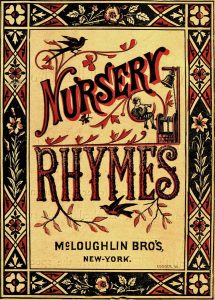
Nursery Rhymes are a great way for children to learn. They are traditional poems used to captivate children’s attention, in and outside the classroom. Therefore, they are a great way to learn and remember. Teachers from all corners of the world use this tool to enrich the teaching and learning process. It makes the class interactive and helps in teaching behavior, vocabularies, communication, and social skills.
Role of Teachers
When they teach and sing nursery rhyme songs to children in the class, children enjoy the interactions more. Experts have also discovered that children who have learned more nursery rhymes are better readers and spellers than those who have learned less. Caregivers should, therefore, teach more songs to improve the reading and spelling skills of the children. The modern world of computing and television technology ensures that children spend less time playing and interacting with others. Music is a great way to replace the time spent on computers, as it is more interactive and one can learn the emotional language, empathize, and develop imagination, and creativity. For example, the nursery songs take children to an imaginary world of fun and fantasy. This develops the visualization skills in children.
Development of Teamwork Skills
Children learn to sing the songs in groups. This develops teamwork skills in children at an early age. The ability to work in groups improves the interaction and negotiation skills in children, which is important in their future lives. When children are trying to get their voice in the groups, it also improves their confidence. The children are able to collaborate in dancing, making their own rhymes, and connecting their movements in a fun way. Additionally, they are able to act the songs in groups and this pulls the shy ones along. Moreover, the rhymes break the monotony in the learning process, and this enhances the concentration of children in the class.
Learning Language
Children love repetition and the nursery songs are repetitive in nature. When tutors use them in in class, it becomes easier for the children to learn new skills in a faster way. The songs are also slower in nature. Consequently, children can learn the way words are formed. Further, children start developing critical listening skills at an early age. This boosts their vocabulary and enhances their reading skills. Experts have proven through research that children who are better readers are also better performers, holding other factors constant. Studies have also shown that children who learn more songs tend to learn speech faster, which helps in expressing themselves. This improves confidence and creativity in children. They can also learn words that they would not learn on a normal occasion. For instance, Baa Baa Black Sheep.
Classroom
When tutors use nursery music as a teaching tool in class, they expose children to interesting literary devices, that are not present in other teaching tools like stories. For example, alliteration in “Twinkle Twinkle Little Star”, and rhyme in “Jack and Jill, went up the hill”. The skills are crucial in learning other concepts of communication particularly in literature.